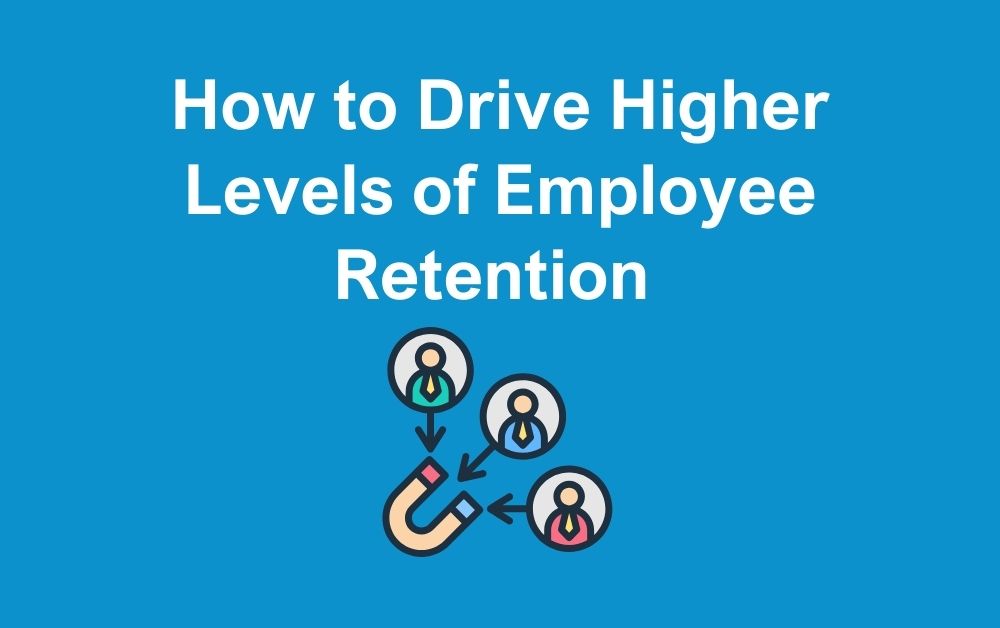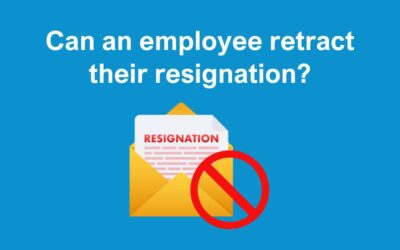Staff are a Company’s biggest asset, employee retention needs to be a key priority.
Managing expenditure is one of the most fundamental requirements to keep a company profitable, but without question one of the biggest costs is employee-related.
Getting staff to perform to a satisfactory level, keeping their knowledge up to date, and the recruitment and training of new staff are all considerable expenses, eating into time which could otherwise be spent on more profitable endeavours. The latter two – recruitment and training of new staff – can be minimised significantly if a company is able to retain a greater level of employees. Retaining staff is important to reduce the overall costs, but also to help ensure customers have the benefit of dealing with experienced employees. Here’s a look at how you can help to drive greater levels of employee retention in your business.
A real risk
In recent years, the instability in the economy has worked to the advantage of businesses, reducing the number of opportunities in the market and making employees unwilling to take any risks. However, as the recovery continues to gather pace, there’s once again more positions opening up in the market, and experts predict this could lead to a greater staff turnover for many employers. In 2015, there’s forecast to be around 765,000 more resignations than in 2012, a sharp increase largely due to renewed confidence amongst the workforce. This predicted trend makes it more important than ever to focus on improving levels of employee retention in your business.
Employee concerns
In order to drive up levels of employee retention, you must first understand exactly what the fundamental issues are, and why staff leave. Analysis has shown that there are generally five factors which influence staff retention the most, and these are (in no particular order): • Confidence in the business and its leadership • Autonomy • Career development opportunities • Appropriate compensation • Supportive work environment Although each business may have specific issues, many of these could be grouped into one of the above categories. How to solve the issue? Much can be written on how to address the above five key areas, but there are some general measures which can be easily implemented which could make a very real difference.
Provide certainty
Staff like the reassurance of knowing that the business is doing well and heading in the right direction. Don’t assume that your employees will realise this; communicate it to them regularly and portray the future in a positive light. This is important for both the immediate management and also the senior executives in the company.
Provide room for growth
Creating new opportunities can be difficult when the economic situation is uncertain but providing your staff with ongoing professional development is extremely important. Employees like to feel that you believe in their ability and potential and that there may be a chance to progress, even if that may take a while. Research has shown that those who were nominated as the “World’s Most Admired Companies” spend up to a third of their time coaching and developing their staff. Help your employees to understand the different opportunities which may become available by having a transparent structure and communicating what skills and competencies are required to attain the next level.
Enable and reward
Showing appreciation for a job well done is important in employee retention
By providing the right environment, you can coax a better performance out of your employees, and by doing so, they will have a far greater sense of job satisfaction. Provide your staff with the authority to make the decisions they need to, without constantly having to refer things for approval. This will help to create a climate of innovation and instill a sense of ownership and responsibility in your workforce. Foster collaborations and make sure you reward not just the right achievements, but the right attitudes and behaviours too. Help staff to understand what remuneration they can expect, and how this can be increased and you’ll find them much more willing to work towards this goal.
Conclusion
The above steps will help your staff feel more satisfied and content with their work and in doing so you will drive up levels of retention. Above all, showing your employees that you are an honest, caring and trustworthy employer and that you genuinely are interested in their well-being will help to earn you a reputation of being a good company to work for. For more information contact us at The HR Booth on 01383 668178 or email us at info@thehrbooth.co.uk







